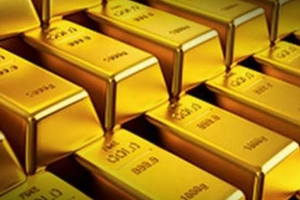‘India as big gold buyer can play key role in world economic order’
India as the second-largest buyer of gold in the world can play a crucial role in the global economic order as central banks are still buying the precious metal in large quantities, Alok Kumar Choudhary, Managing Director, State Bank of India (SBI), said on Friday.
“We have also seen how India can be the fulcrum in setting up global economic corridor,” he said while addressing the 15th International Gold Economic Forum organised here by ASSOCHAM.
While the gold standard might not be in place anymore, several banks including the RBI continue to hold gold reserves as a staple component of their overall reserves, he added.
“In an interconnected world, economic ties transcend borders and gold’s role as common accepted asset can foster a sense of stability and potentially contribute to a more integrated, co-operative global economic system. Banks as critical stakeholders in the financial ecosystem play an important role in formalising gold to ensure the integrity of the financial system,” Choudhary said.
Addressing the gathering, Dr. C. Rangarajan, former Chairman of the Economic Advisory Council to the Prime Minister and former RBI Governor, said: “Gold has been a tangible asset since ancient times, in all cultures and across all periods of history. While held as reserve by central banks, it no longer plays the role of intermediary in circulation. As the second largest consumer of gold, India accounts for one-fourth of the global demand. India’s import of gold was 394 tons in 2000 and 774 tons in 2022 or $135 million. In 2022-23, gold imports accounted for 52.2 per cent of the current account deficit. The current level of import duty on gold is reasonable and is among the lowest among commodities.”
Somasundaram P.R., Regional CEO – India, World Gold Council, said: “Gold is a very good diversifier, it de-risks your portfolio and enables you to take more risk in other financial asset classes. India, as a gold consumer, can also be proud to have HUID technology through which every piece of jewellery hallmarked can be traced to its origins, which is aspirational in other markets.”
Suvanker Sen, Co-Chairman, National Council on Commodity Markets – ASSOCHAM, said: “Consumer behaviour over the years in India has proven that we trust in gold. The various initiatives undertaken by all stakeholders has achieved a lot but a lot more can be done. The growth of the country is closely linked with the rise of gold as an asset. The 25,000 tons of gold that is embedded in our economy is one major driver.”
S.C. Aggarwal, Senior Member, Managing Committee – ASSOCHAM, said: “Gold has multiple usage, as an ornament, it is a status symbol and an investment as well. India needs around 800 tons of gold every year necessitating imports which increases our trade deficit.”

